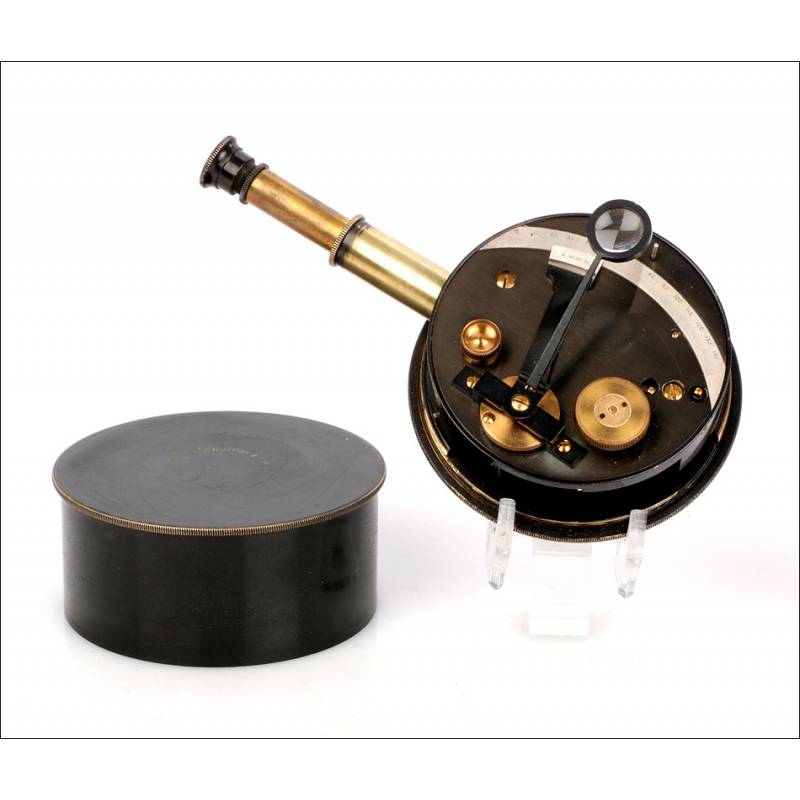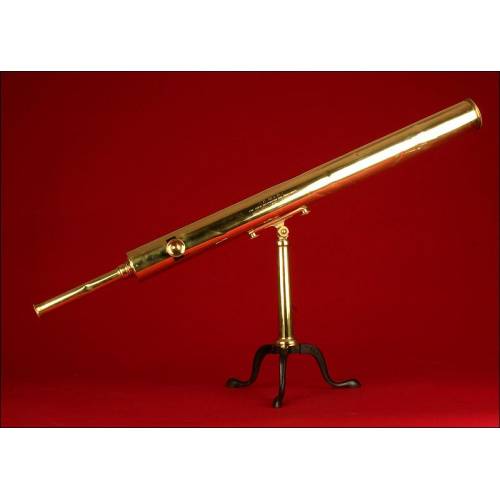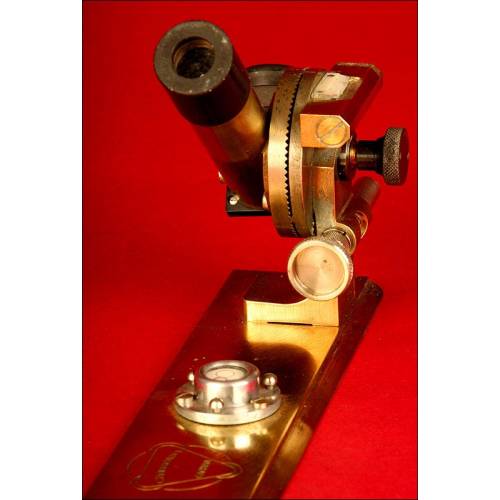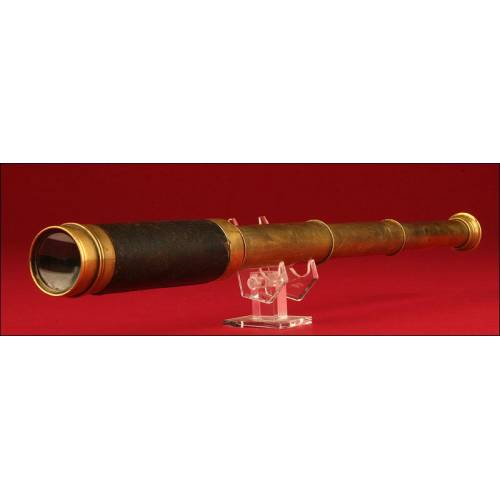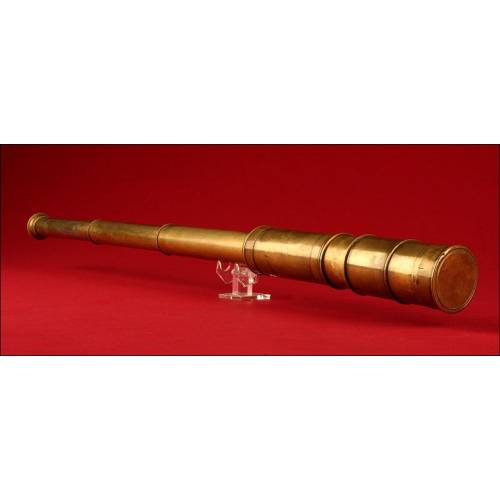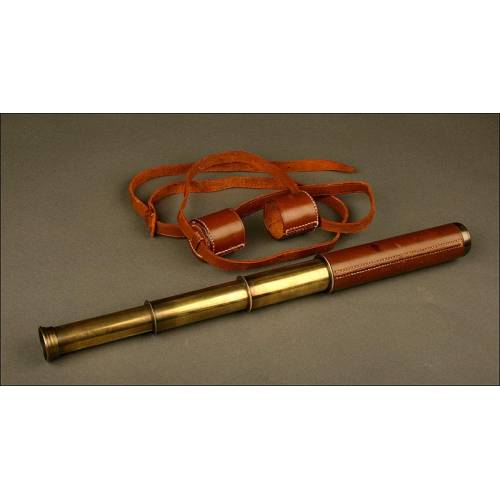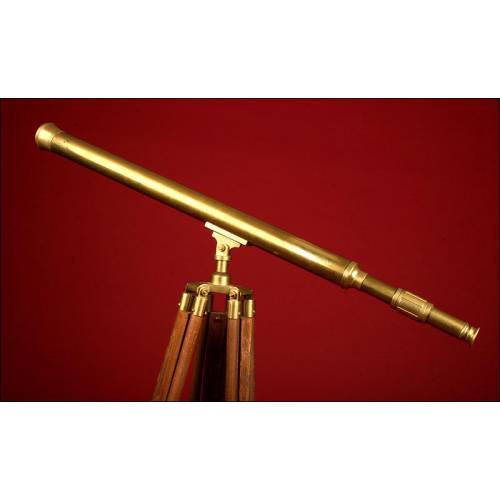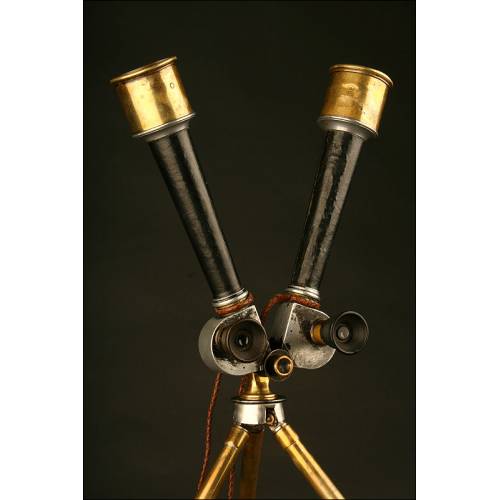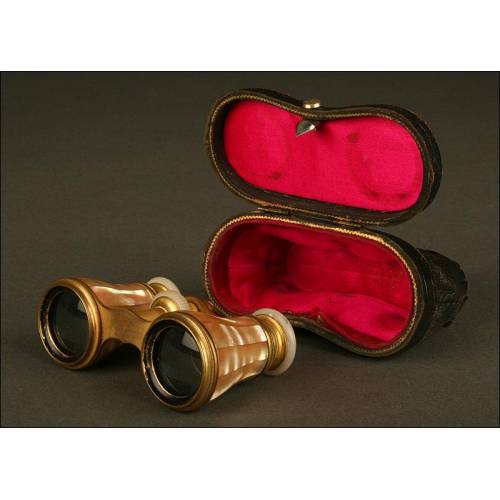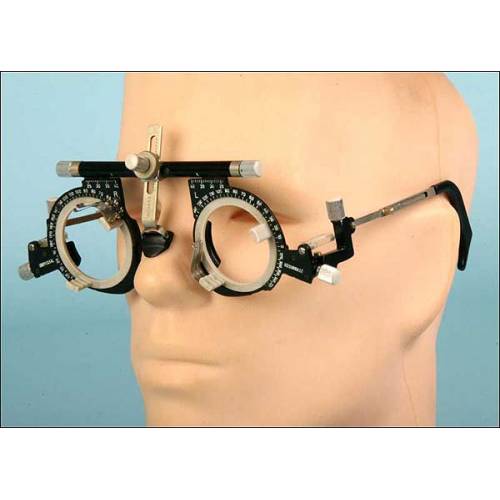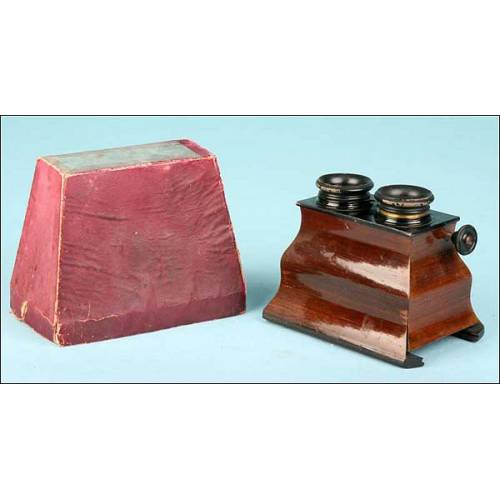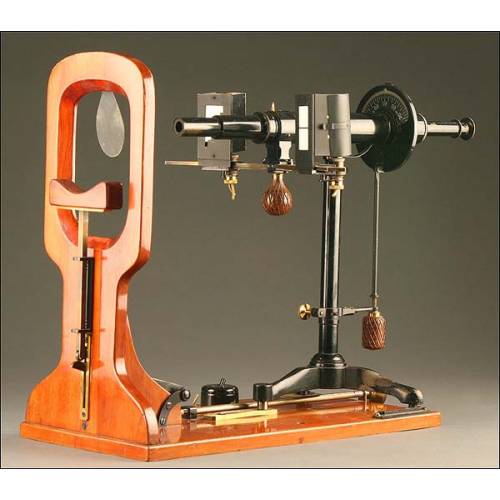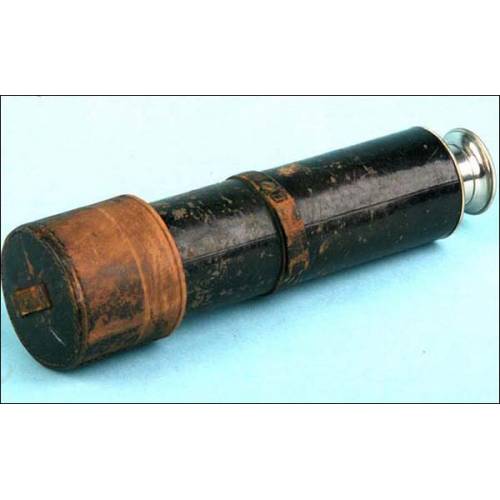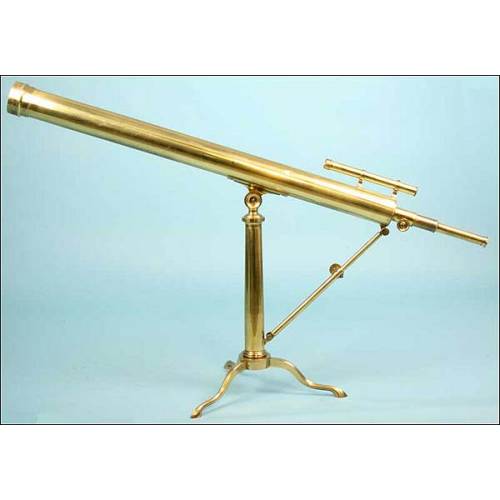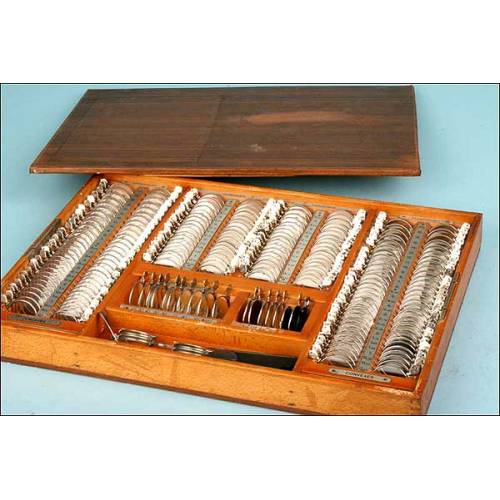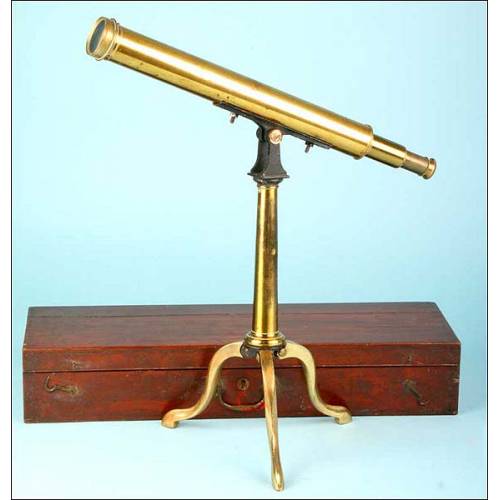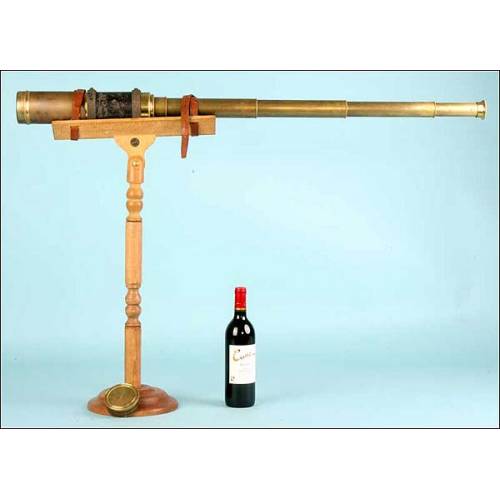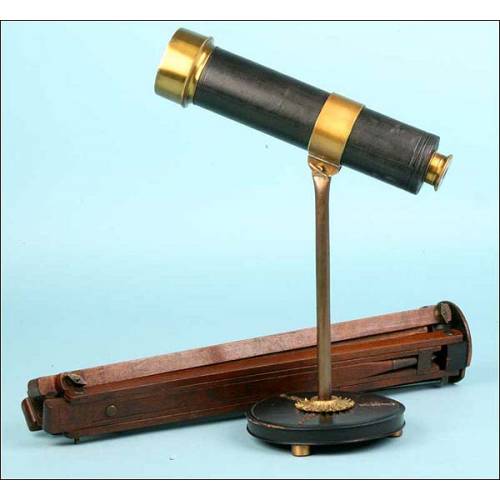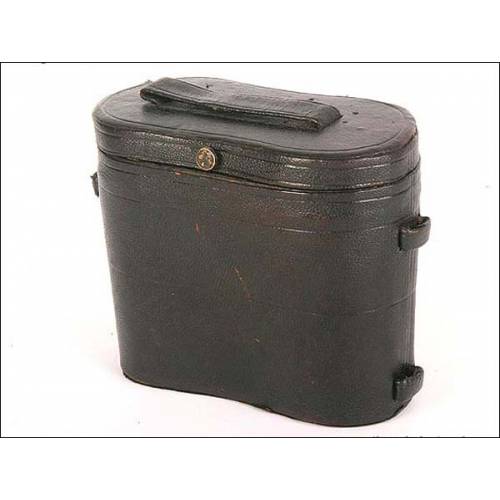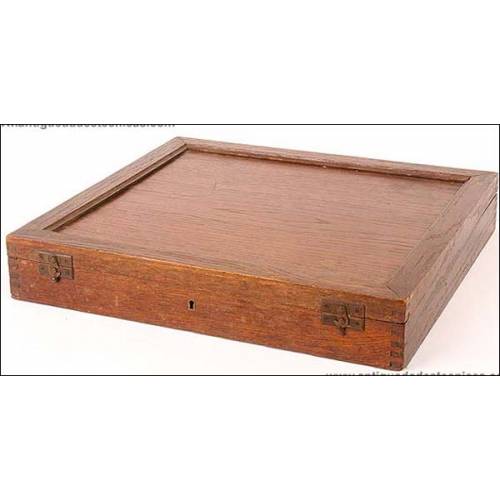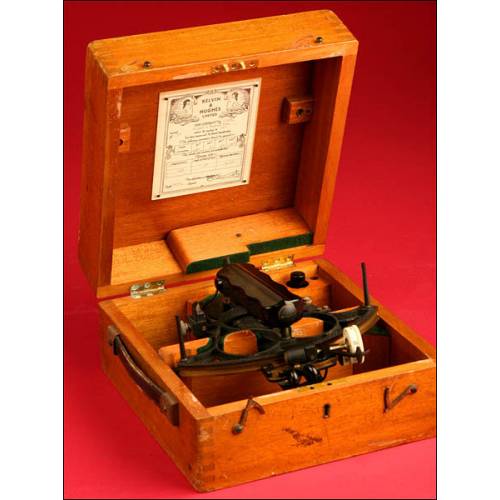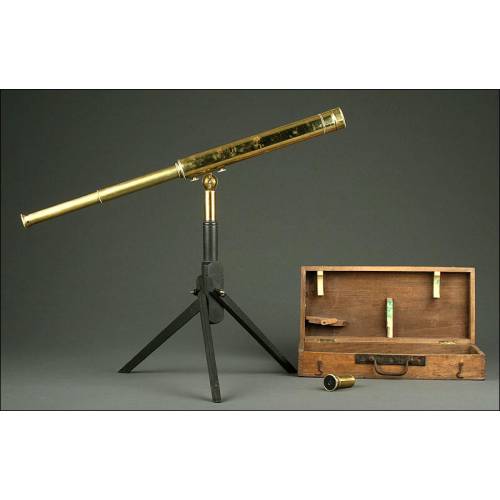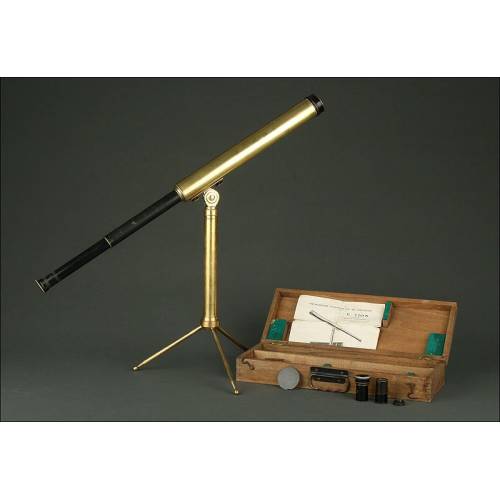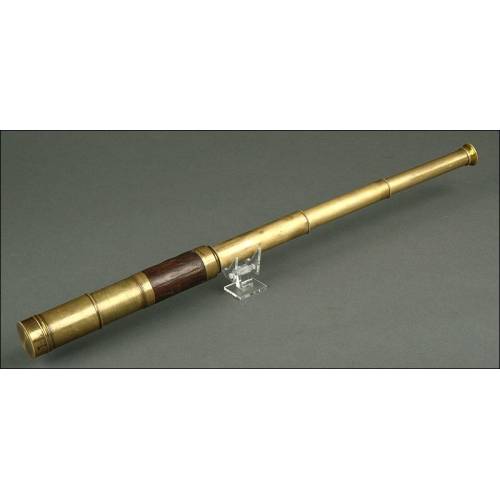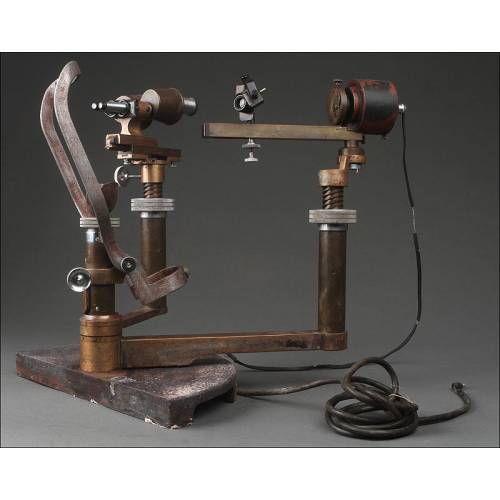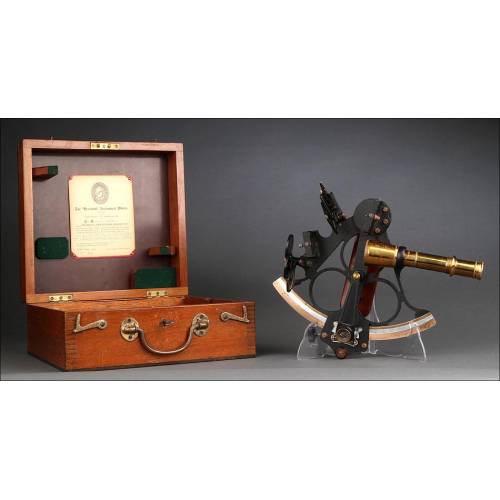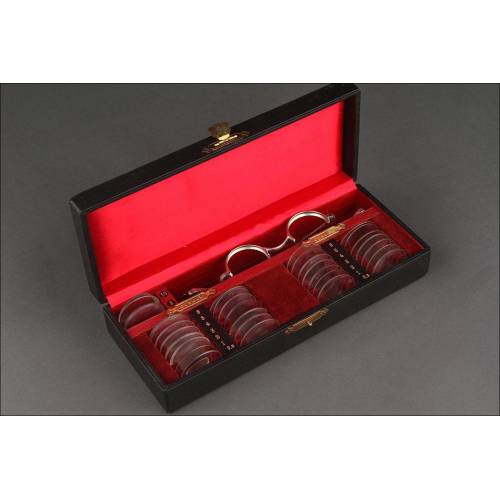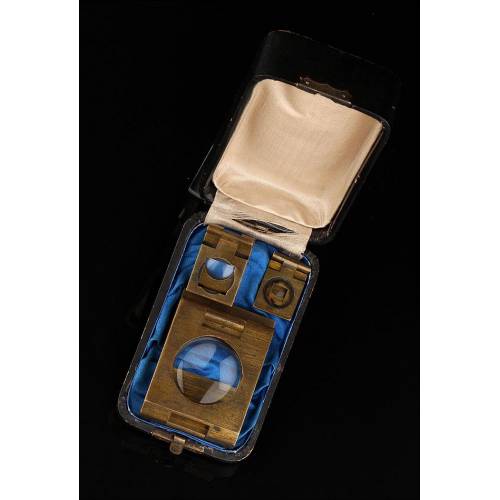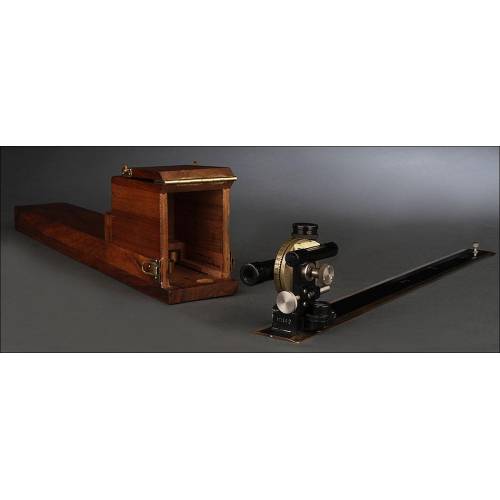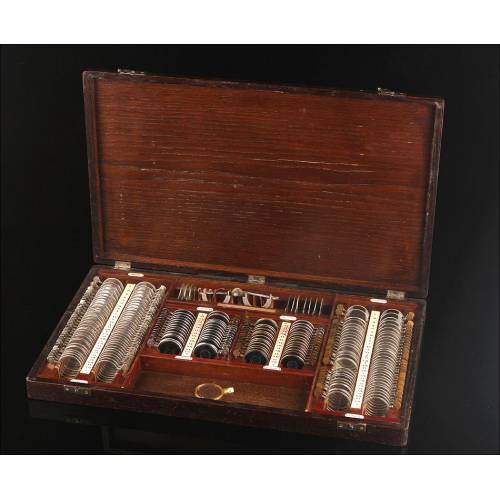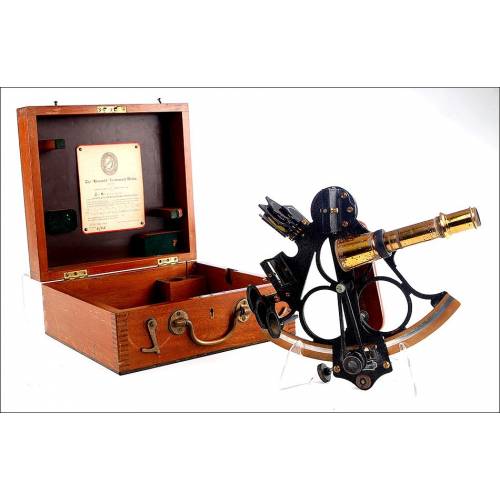C-482
Antique Cooke Throughton & Simms Pocket Sextant. England, Circa 1925
Fascinating antique pocket sextant signed Cooke, Throughton & Simms. Very little used and with original case. In working condition.
Sold!
Amazing pocket or travel sextant made in England and dated circa 1925, in really good condition and in its original carrying bag. This wonderful instrument is around one century old and remains in an almost flawless condition, boasting also an impeccable working order. The sextant is signed by the prestigious British maker Cooke, Throughton & Simms and looks as if it had been rarely used. The device mounts a series of original component parts in excellent condition: two color filters, a tuning key, a magnifier for the scale and a solar filter. The sextant is cyllindrical in shape and has black-lacquered metal casing and lid, both in great condition. If we remove the lid, we will be able to attach the viewer to the devices body and unfold the filters. Inside the lid there is a note with the Natural Tangents, and an advice about how to clean and take care of the lenses. Outside the lid bears the engraved manufacturing companys name: COOKE, THROUGHTON & SIMMS. The sextant can be stored in its original small light-brown leather bag, in practically mint condition. Original, functional and undeniably charming, this marvelous antique pocket sextant is the perfect item for a good collection of marine antiques.Troughton & Simms History Troughton & Simms was a British scientific-instrument manufacturing company founded in London in 1826 by Edward Troughton and William Simms. Throughton had already owned a similar business that he inherited from his father. On the other hand, Simms had trained as a goldsmith and worked dividing circled for fine astronomic instruments. When Simms died in 1860 his part of the business was assumed by his son James and his nephew William. The Troughton & Simms shop was located in Fleet Street and it eventually became the focal pont of the best scientific instrument manufacture in London. Among their customers were the Greenwich Observatory and the famous surveying and exploring expeditions of the time. Nevertheless and in spite of the great reputation of their quality instruments, the company received many complaints from their customers because of their delays in delivering the instruments (delays that could last for years). In 1915 the business became a limited company and in 1922 it merged with T. Cooke & Sons, becoming Cooke, Troughton and Simms.

